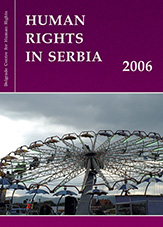


Keywords: Human Rights; Bioethics
The article examines the new generation of human rights related to bioethics. Some basic documents of the UN, UNESCO, Council of Europe and the European Union are mentioned. Undoubtely, the emphasis is laid on the regional acts. Some emblematic decisions of Strasbourg Court have been analysed with strong connection to to the bioethics and the begginning of the right to life. The article also takes into account 2011 amendments to the Art.II of the Hungarian constitution.
More...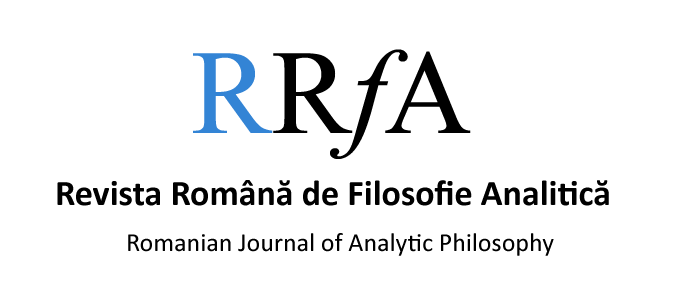
Keywords: rights; duties; human rights; individual rights; rights as ‘trumps’; universal rights; ‘absolute justification’; private interest; public interest; internal connection.
The aim of this paper is to provide some arguments against the growing tendency to take the present convictions on human rights as a sufficient basis for their universality. The target of my argument is a certain fashionable view about rights as ‘trumps’. Against this view, my arguments are meant to support positions like Chris Brown’s.
More...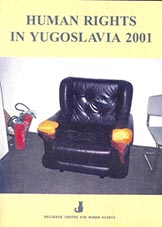
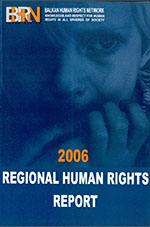
Keywords: Human rights; legal protection of individual human rights; acces to education; acces to work; discrimination; national minorities; pensioners
This article explores the situation with human rights in Croatia in general in 2006. and the progress in respecting of human rights regarding a year before. It is clear that the stagnation is noticeable regarding a year of 2005. The consequences of violation of human rights from earlier years are not completely reorganized. The housing and other existential problems of returnees (the housing, employment, electricity supply, returning of agricultural land) still haven't been resolved adequately, it hasn't been done enough for integrating of Romany students in school system, social status of so called new pensioners is worsened and slowness of Croatian courts is still major problem. Ethnically motivated violence and ethnic intolerance is not reduced, although public reactions against these manifestations are more frequently then in previous years. The human rights in legal acts in Croatia are well cowered. The Constitution of the Republic of Croatia edits human rights in details, in separate chapter (Protection of human rights and fundamental freedoms), in 55 articles, and it is systematized in two groups: (1) personal and political freedoms and rights and (2) economic, social and cultural rights. All classical human rights and freedoms are included, most of the second-generation rights and right to healthy living. From 08th October 1991 the Republic of Croatia is, by notification of succession, a party of all international treaties which were accepted by ex Yugoslavia (SFRJ). Until the end of 2006 Croatia ratified most of international instruments for protection of human rights. The principles of legally no obligatory international treaties are also implemented in positive legislation. This paper aims to uncover the individual rights: (1) to free and obligatory primary education and equal accessibility to all kinds of secondary and higher education, right on non-discrimination in education on all levels and fields of education, phenomena of voluntary segregation of children concerning their ethnic affiliation, in east Slavonija; (2) on legal protection of individual rights (access to law), access to effective legal protection, a right on effective court protection, legal remedies and the Constitutional lawsuit, national human rights institutions, non-judicial bodies (ombudsman institutions and their role), the problems in realization of right to access to law and court, (3) labour rights and violations of labour rights . In this article is cowered the situation of disadvantaged, marginalized and vulnerable groups: (1) the right to work - minorities and development of equal opportunities for employment, discrimination in employment and other violations of labour rights (berth discrimination, ethnic discrimination) , (2) the social rights of the pensioners who are the most vulnerable and most numerous group, according to criteria of poverty, age and health condition and among them those who have retired after 31st December 1998.
More...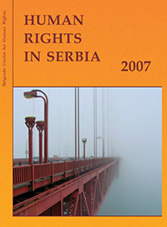
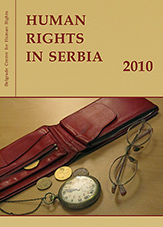
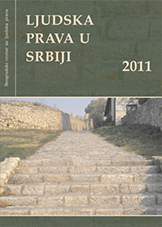

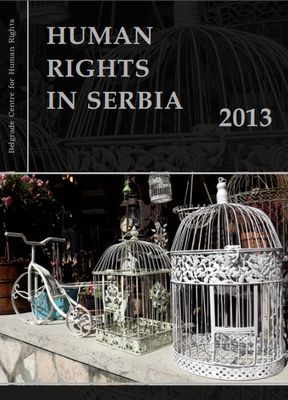
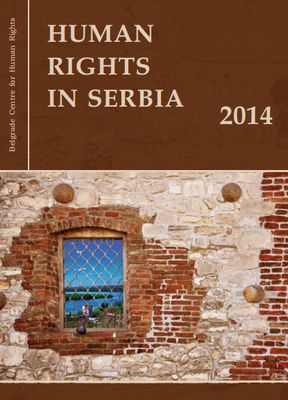
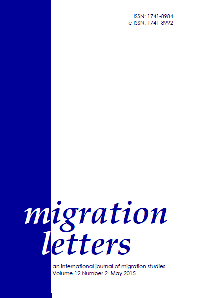
Keywords: Circulation; international migration; demographic distribution; Hungary; parity analysis;
We measure the demographic patterns associated with international circular migration. Firstly, we define the circulation within the conceptual framework of transnationalism. Secondly, we create macro-scale data bank on long-term international circular movers based on an original statistical method. Thirdly, we seek to gain further insight into the composition of international circular movers by gender, age, and family status. The data are obtained from the Office of Immigration and Nationality. The primary database consists of individual data files on legal immigrants. The results of this research indicate that the long-term circulation (multiple mobility) of foreigners to Hungary as the host country is a mass phenomenon. More than 14 per cent of legal immigrants arriving in Hungary were long-term circulars between 2006 and 2008. Of these registered circular movers, 75.9 per cent entered the country for a second time, 21.6 per cent for a third time, and 2.5 per cent for a fourth time. Conclusions indicate the need for future research.
More...Keywords: international crime; extradition procedure; European arrest warrant; mutual recognition;
In this article we proposed to mainly analyze the institution of the European Arrest Warrant, and its implications on the right of individual liberty, taking into account the procedure regulated by the Council of European Union Framework Decision 2002/584/JHA of June 13th 2002. In the first part we present the context in which the framework decision was adopted, with a special focus on the purpose of this instrument, that has been conceived in order to replace the existent and old extradition system of the member states, requiring that each national judicial authority with an executory role recognize the surrender request of another member state. In the same time, this instrument, that always implies the arrest of a suspect or of a condamned person, is able to prejudice the right to individual liberty, a risk that has been proved to be real in the entire period since 2004, the year of entering into force of the European decision on the European Arrest Warrant. This is the reason for what we proposed to analyze the limits and the guarantees of the right to individual liberty contained by the Decision 2002/584/JHA and also in the national regulations, with a special focus on the Romanian legal approach by the Law no. 302/2004, concerning the international judicial cooperation in criminal matters.
More...Keywords: international crime; extradition procedure; European arrest warrant; mutual recognition; principle of double criminality;
In this article we proposed to mainly analyze the institution of the European Arrest Warrant, and its implications on the right of individual liberty, taking into account the procedure regulated by the Council of European Union Framework Decision 2002/584/JHA of June 13th 2002. In the first part we present the context in which the framework decision was adopted, with a special focus on the purpose of this instrument, that has been conceived in order to replace the existent and old extradition system of the member states, requiring that each national judicial authority with an executory role recognize the surrender request of another member state. In the same time, this instrument, that always implies the arrest of a suspect or of a condamned person, is able to prejudice the right to individual liberty, a risk that has been proved to be real in the entire period since 2004, the year of entering into force of the European decision on the European Arrest Warrant. This is the reason for what we proposed to analyze the limits and the guarantees of the right to individual liberty contained by the Decision 2002/584/JHA and also in the national regulations, with a special focus on the Romanian legal approach by the Law no. 302/2004, concerning the international judicial cooperation in criminal matters.
More...
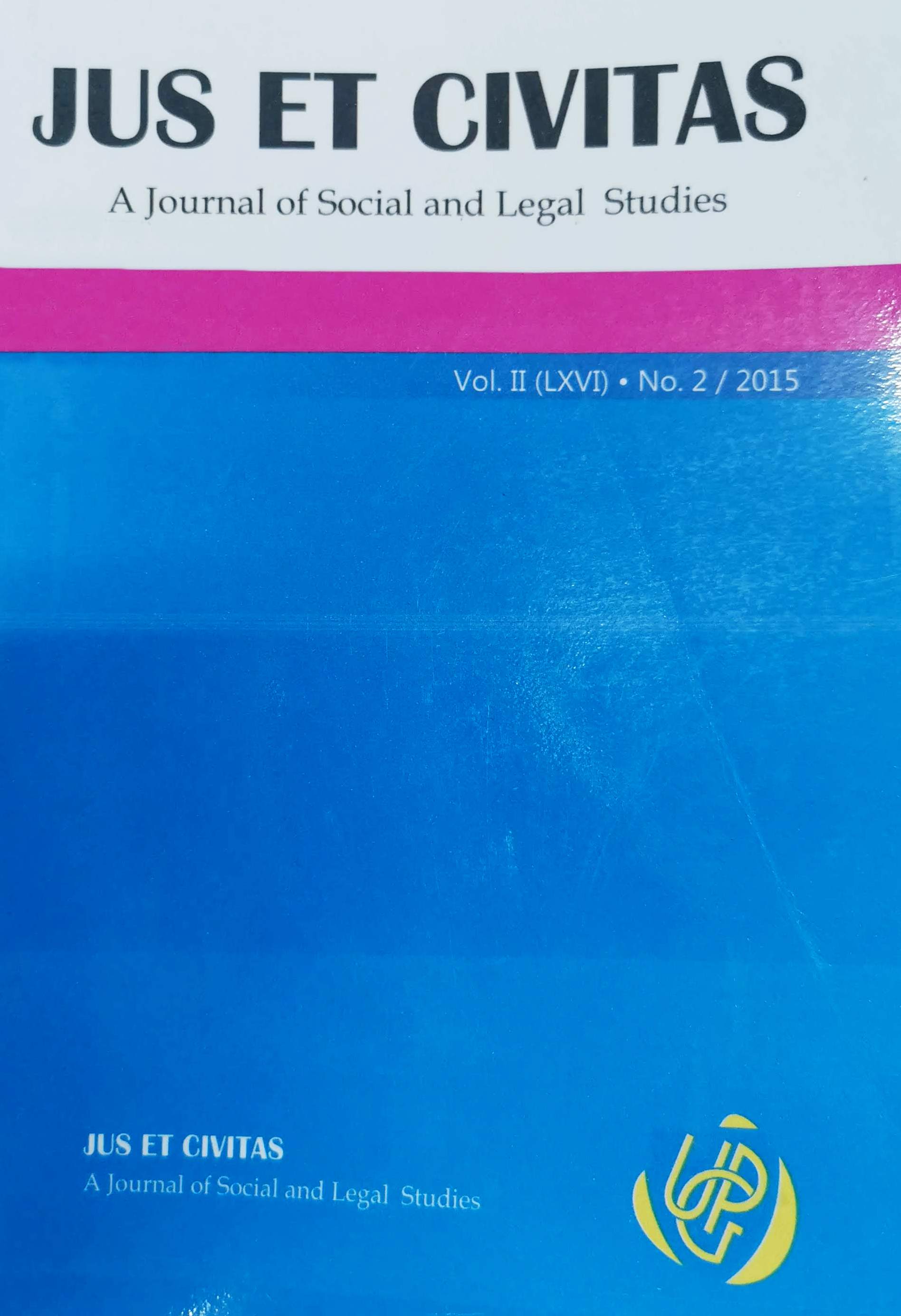
Keywords: rights; detriment; appeal; damages;
ccording to Article 13 of the European Convention on Human Rights, any person whose rights and freedoms have been infringed may apply to a national court. For the purposes of the Convention the person whose rights have been violated has the right to appeal to national courts even breach occurred through a person that was in the exercise of official duties.
More...
Keywords: rights; appeal; incident; term;
According to article 6 of the European Convention on Human Rights, everyone has the right to a fair hearing of his case. This concept is related with the existence of a public hearing and provide a reasonable opportunity to respond to the applicant's request. The reasonable time impose a expeditiously judgment by an independent and impartial tribunal. On the other hand, the publicity of the hearing is respected even if the court prohibits public access throughout the hearing or yet for a certain period only if the ban is in the interest of morals, public order or national security. The extent of denying access during the hearing can be reported to the interests of juveniles or the protection of private life or the protection of private parties.
More...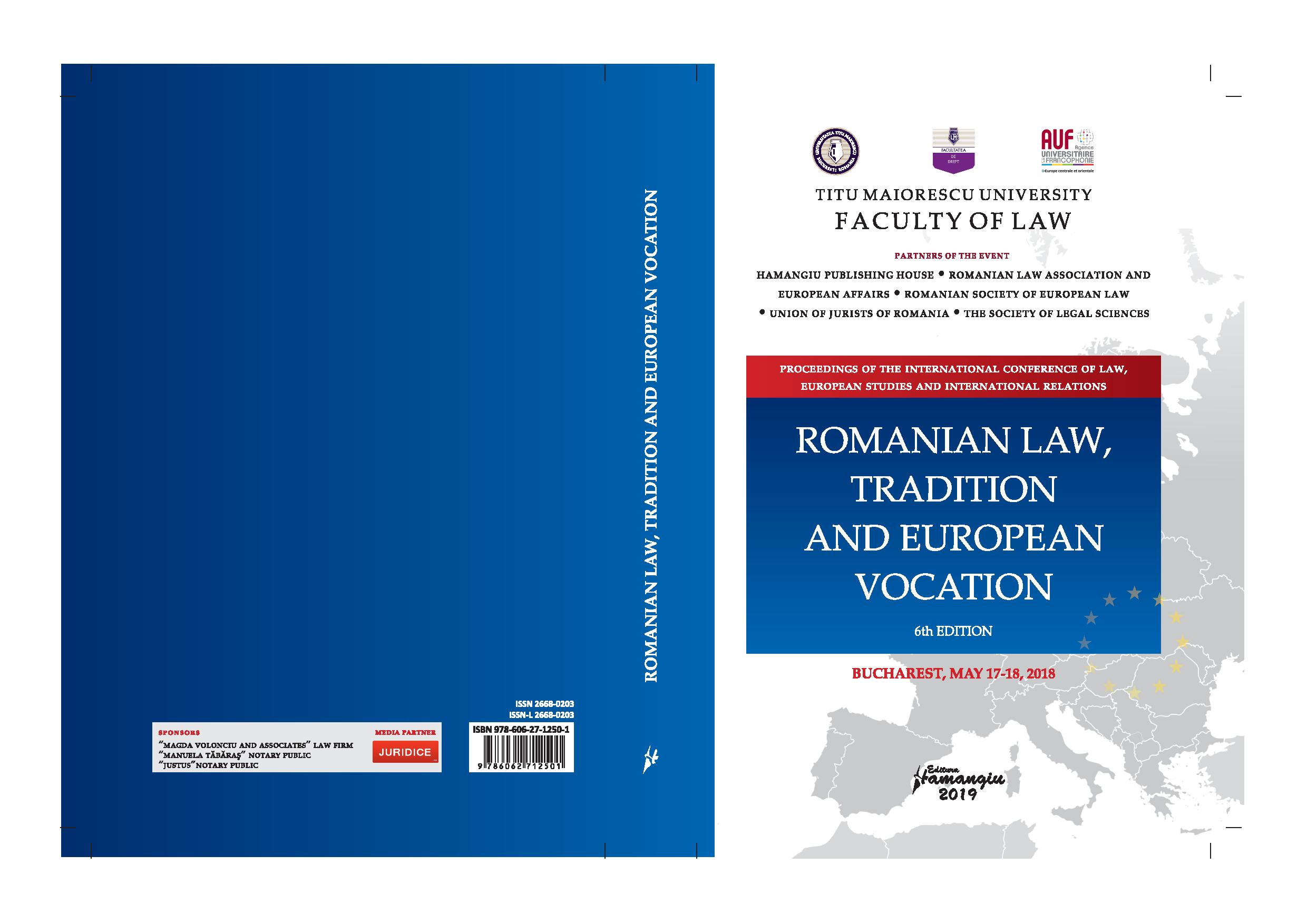
Keywords: human dignity; principle; evolution of the concept; human rights; international regulations;
Human dignity was unequivocally the underlying principle of the most important documents adopted internationally in the field of human rights after World War II. Nevertheless, a series of confusions have arisen with regard to the concept of human dignity and the definition which should be given to this concept especially that, at national level, constitutions of states qualify human dignity as being a right or a principle. This article is intended to offer a short description regarding the evolution of the content of the human dignity concept and the important points in time which marked its evolution, especially in the light of international and regional legal instruments adopted in the field of human rights, and to present several aspects referring to the valences of the human dignity concept and how it is perceived and understood today and the important role it plays in granting and protecting the rights that are inherent to the human being.
More...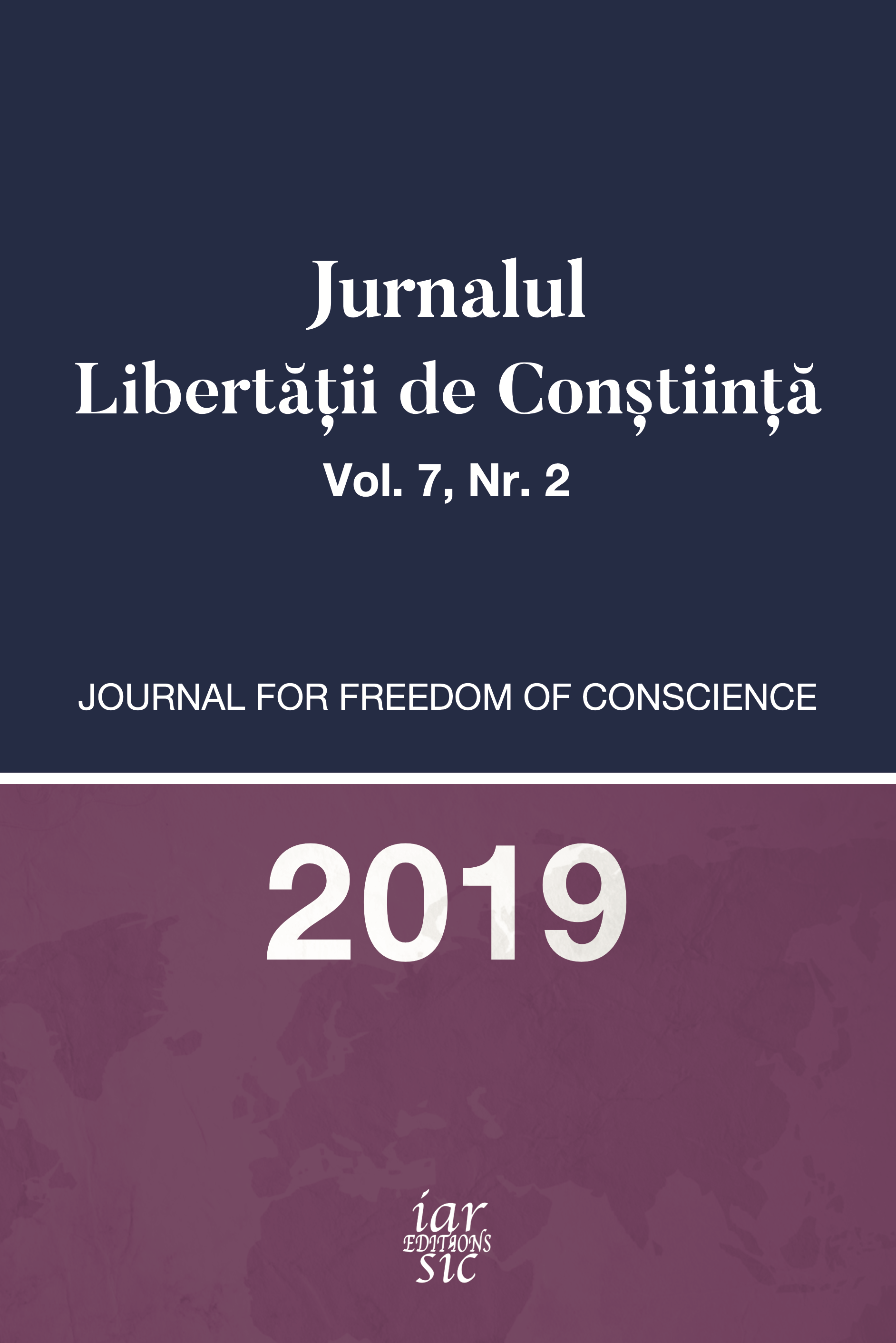
Keywords: human dignity; human rights; Universal Declaration of Human Rights (UDHR); Cairo Declaration of Human Rights in Islam (CDHRI);
The concept of human dignity as the most intimate human desire and its interpretations transgress the fields of theology or philosophy and shows its relevance in policymaking, economics or technology. This article analyzes the concept of dignity as a cornerstone of the Universal Declaration of Human Rights (UDHR). Drawing its legitimacy from the United Nations as a community of nation states, the charter states its universality but as such it was and still is today questioned and denied. The UDHR antagonistic counterpart was drafted in 1990 in Cairo, bears the title the Cairo Declaration on Human Rights in Islam and is, according to its drafters, also based on the concept of dignity, leading to the question of diverse and opposed interpretation and implementation of the concept.
More...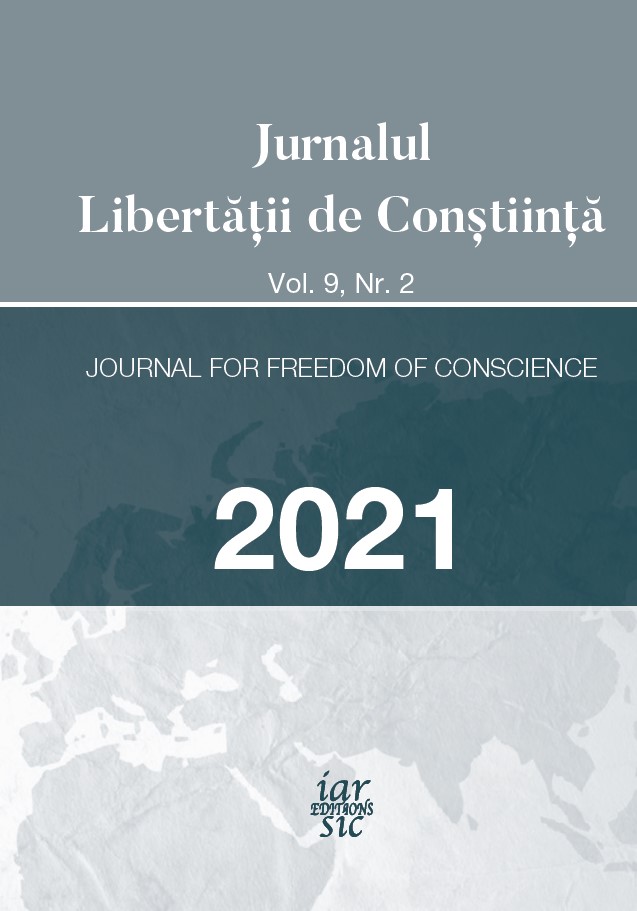
Keywords: God as the Creator; human behavior; human dignity; human nature; human rights;
In a world marked by turmoil and social unrest, the definition of human dignity and human rights is a valid question. However, both dignity and human rights have a solid foundation and come with responsibilities in order to be enjoyed. The foundation for human dignity and human rights is the relationship between man and his Creator. The responsibilities that come from human dignity and human rights are the relationships of people with their Creator and with others. In this article both aspects, the foundation and the relationships, will be covered from a Christian perspective.
More...